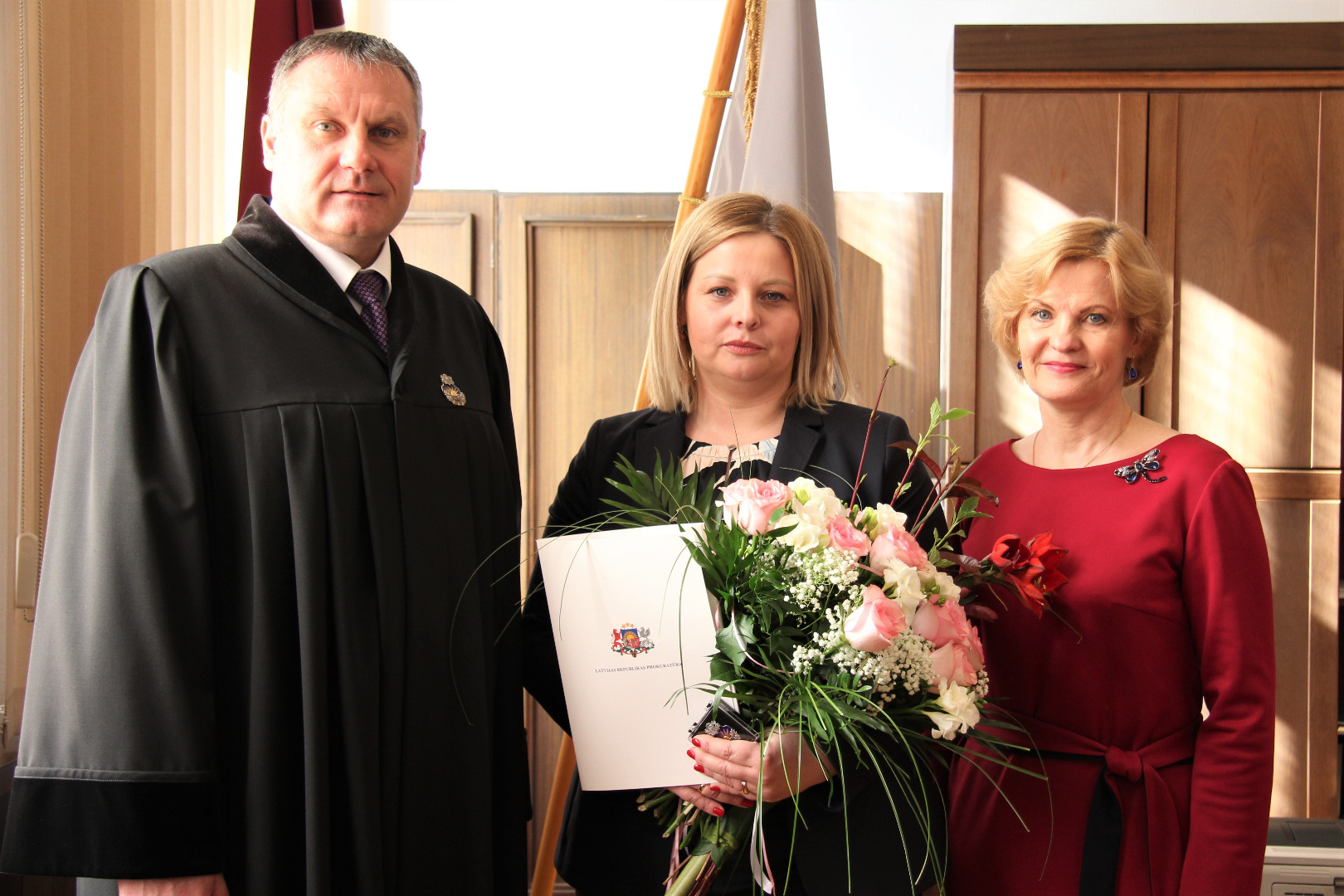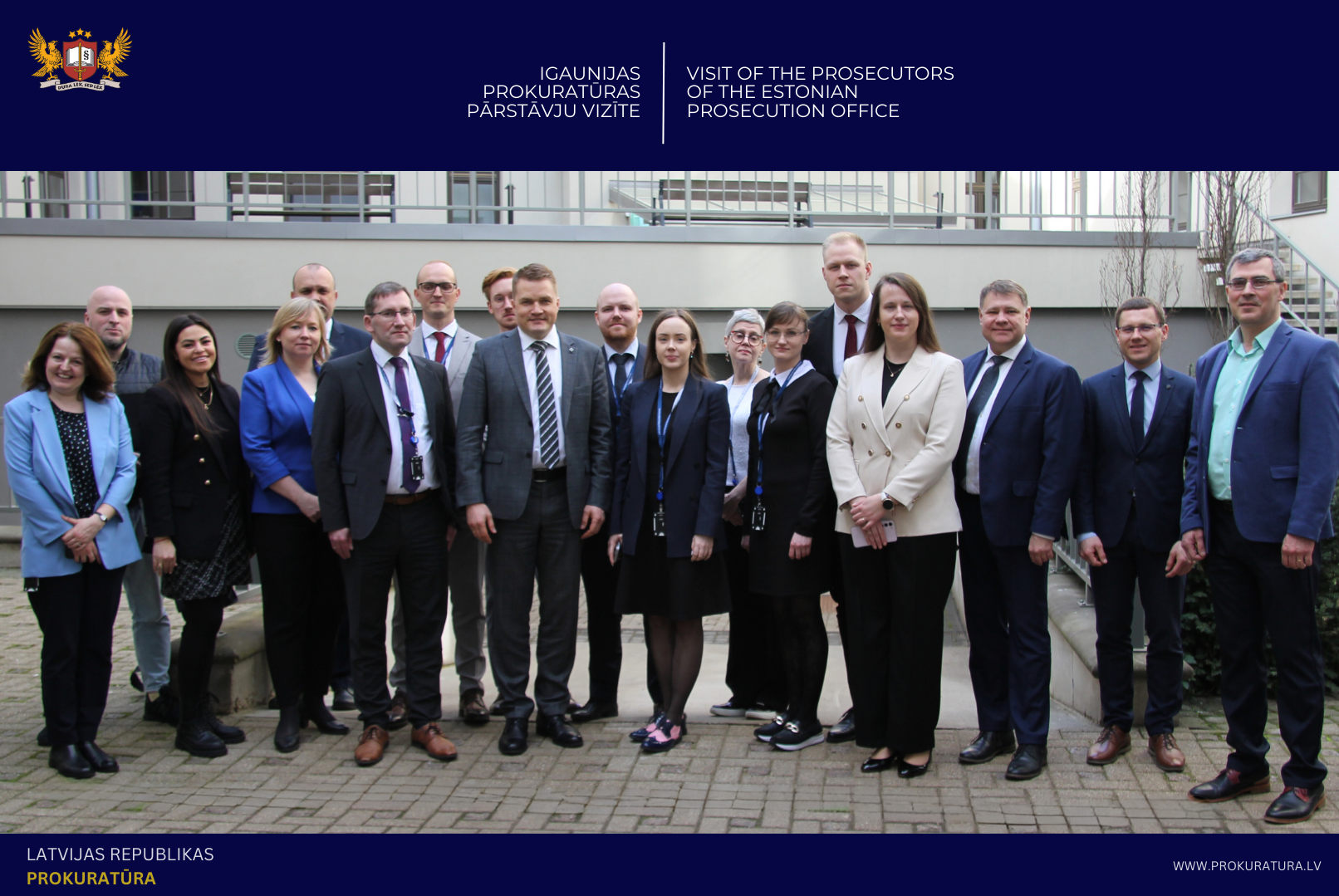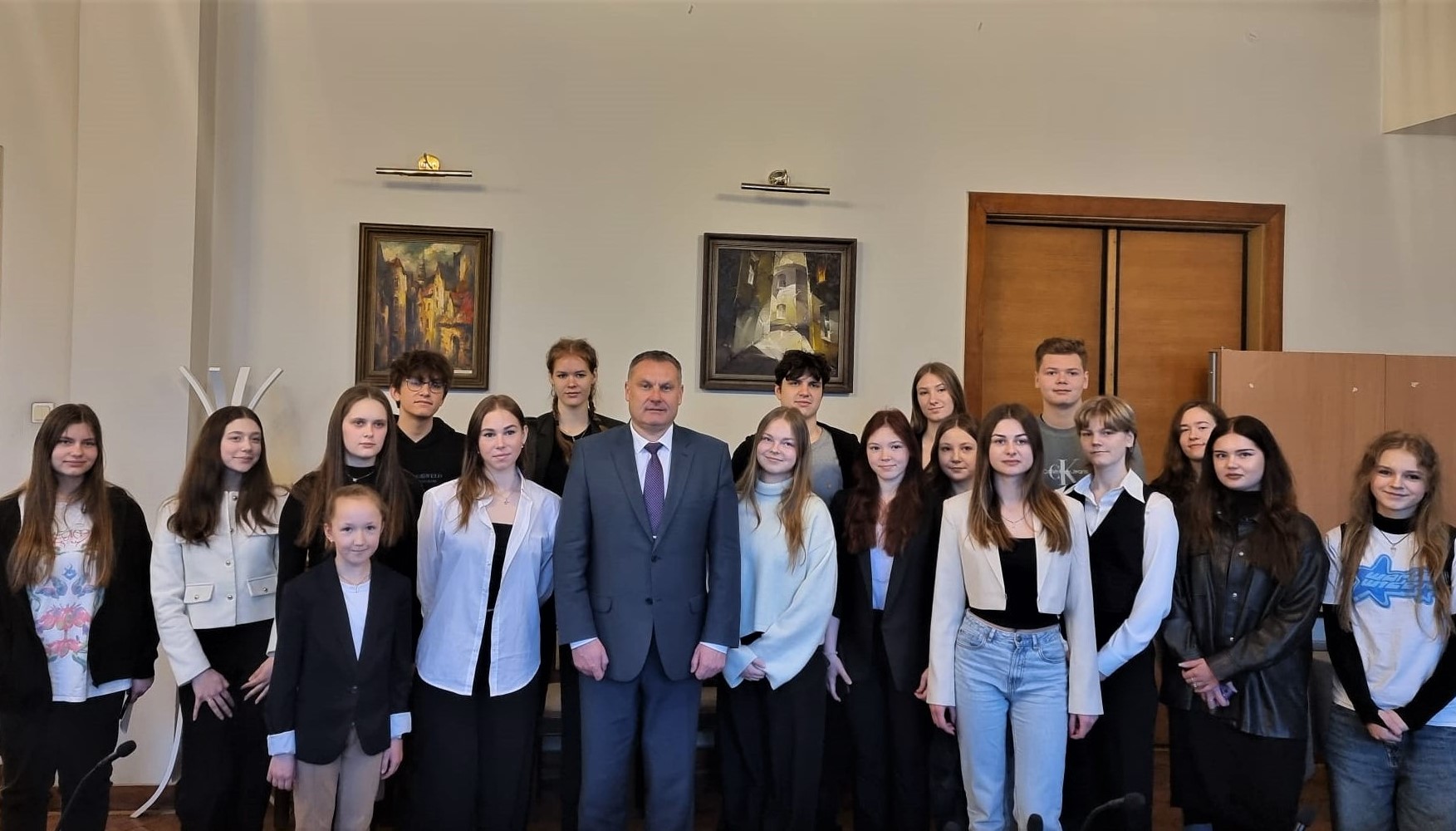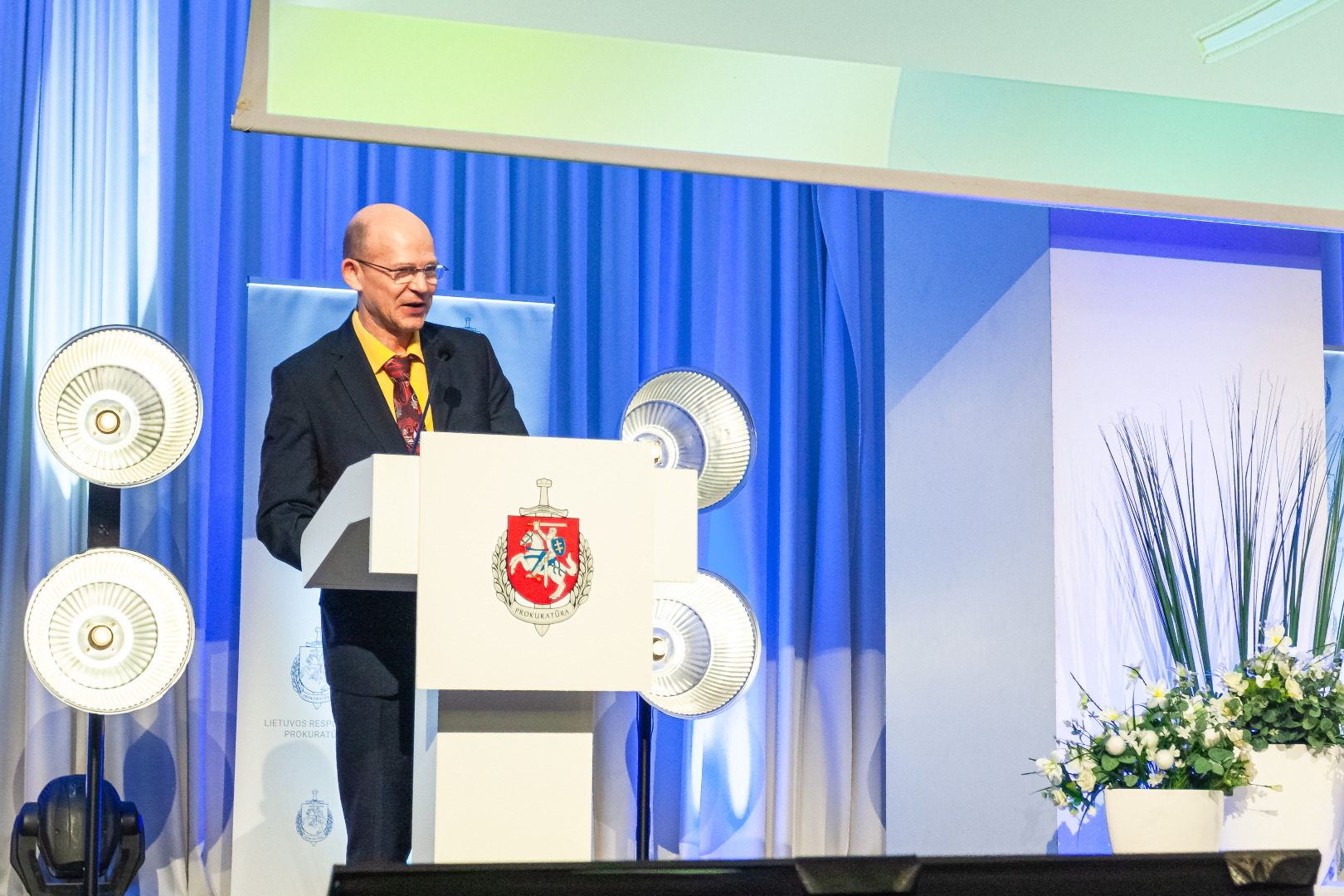The Prosecution Office of the Republic of Latvia was established on 26 September 1990, when the Supreme Council of the Republic of Latvia (Latvijas Republikas Augstākā Padome) passed the Law “On Prosecutor’s supervision in the Republic of Latvia”. The Law entered into force as of the date of its passing. In the Law were laid down the key organisational and functional principles of the Prosecution Office, as well as the powers of Prosecutors.
Concurrently by the decision of the Supreme Council of the Republic of Latvia to the position of Prosecutor General of the Republic of Latvia was appointed Mr Jānis Skrastiņš, assigning to him the task to establish the Prosecution Office and ensure its functioning according to the legal provisions.
Since 1 July 1994 in the Republic of Latvia is effective the “Law on the Prosecution Office” passed by the Saeima (the Parliament) on 19 May 1994. Since that time the Law is amended and supplemented, nevertheless it is still governing the functioning of the Prosecution Office.
On 21 September 1995 the Saeima of the Republic of Latvia re-appointed Mr Jānis Skrastiņš for the second term-of-office of Prosecutor General.
On 11 May 2000 the Saeima appointed to the position of Prosecutor General Mr Jānis Maizītis for five years. Consequently on 3 March 2005 Mr Jānis Maizītis was re-appointed by the Saeima of the Republic of Latvia for the second term-of-office of Prosecutor General.
At present the duties of Prosecutor General are being fulfilled by Mr Ēriks Kalnmeiers. He was appointed to this position on 12 July 2010.
The Prosecution Office has an exclusive criminal prosecution competence in the country.
Public prosecution authorities in Latvia
Years 1918–1940
When the independent Republic of Latvia was declared on 18 November 1918, in the new country almost everything had to be built up from the very beginning, including the establishing of the law enforcement authorities. The People’s Council of Latvia (Tautas padome) on 6 December 1918 approved the interim Statute “On Courts of Latvia and litigation procedures”. In the Article 8 of the Statute was laid down the structure of the public prosecution system: to the Courts Senate is attached Head Prosecutor with associates, to the Courts Chamber and Regional Courts – Prosecutors with their associates, as well as Investigation Judges in the Regional Courts.
Regardless to the difficulties, Latvia rapidly formed the operational system of the courts and the public prosecution. It was proven by the achievements of the law enforcement authorities of Latvia in combatting with the augmenting crime rates endangering the new country in the decade following year 1920.
First Head Prosecutor of the Senate was Senator Mr Voldemārs Zāmuels.
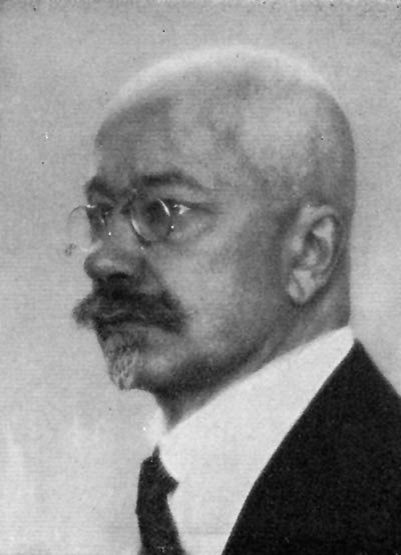
First Head Prosecutor of the Senate Mr Voldemārs Zāmuels, 22 May 1872–16 January 1948
Prosecution Office of the Latvian SSR
Years 1940–1985
On 16 June 1940 USSR issued the ultimatum to the Republic of Latvia, demanding to allow an additional Soviet troops to enter into the country and to form a new pro-USSR government. On 17 June 1940 resigned the government of Latvia chaired by Mr K.Ulmanis, after that was formed the Cabinet of Ministers of Mr A.Kirhenšteins being under control of the Soviet occupation power and on 5 August 1940 USSR annexed the State of Latvia.
The public prosecution system of Latvia was rearranged according to the structure existing in the USSR. The supervision of Prosecutor of the Latvian SSR was exercised both directly by the USSR Prosecutor and also by Prosecutor of the Latvian SSR, appointed into the office by USSR Prosecutor for a five years term of office. Circuits and cities Prosecutors were appointed into the office for a five years term by Prosecutor of the Latvian SSR upon approval of USSR Prosecutor. As first Prosecutor of the Latvian SSR was appointed Mr Ernests Soldnieks.
Like in the totalitarian USSR the Prosecution Office of the Latvian SSR was not only the law enforcement agency in charge of supervision of the lawfulness and fight with law offenders, but became also the part of the repressive mechanism of the Soviet rule. Many employees of the judicial and public prosecution system of Latvia, who were regarded by the Soviet rule as “especially disloyal”, suffered from the repressions of the Soviet occupation power.
Public prosecution authorities in Latvia during the occupation of Nazi Germany
On 22 June 1941 the war between the USSR and the Nazi Germany broke out. German troops invaded into the territory of Latvia. Latvia together with Estonia, Lithuania and Byelorussia was incorporated into the special area of the occupation administration – Reichskommissariat Ostland as Riga (Latvia) general region (Generalbezirke).
The occupation rule partially reinstated the law provisions which were effective in the free state of Latvia, tailoring them to the ideological peculiarities of the Nazi regime. On 13 June 1942 were passed the Regulations “On law provisions effective in the general region of Latvia”, laying down that since 2 July 1942 in Latvia are applicable the law provisions adopted in the free state of Latvia until 17 June 1940 insofar as they are not in contradiction with the interests of Germany.
Prosecution Office of Latvian SSR
In July 1944 the Soviet troops re-invaded into the territory of Latvia.
The USSR occupation regime was renewed and the “development of new law” continued with the purpose to equalize it with the understanding of the law concepts existing in the USSR.
In the Latvian SSR 25 circuit Prosecution Offices were operational in1948. In 1949 instead of circuits 58 rural districts were established in Latvia, thereby the number of the Prosecution Offices also was modified. In 1952 were established three Regional Prosecution Offices (in Rīga, Daugavpils and Liepāja), which existed until 1 May 1953, when they were wounded up, replacing by Prosecution Offices of 26 administrative districts.
In the post-war period the high staff turnover rate was widespread in the Prosecution Office. Many were dismissed because their former involvement into the organizations of the so-called “bourgeois Latvia” was revealed or because their relatives were repressed due to the political reasons. On 24 May 1955 the Presidium of the Supreme Soviet of the USSR passed the Law “On supervision exercised by the Prosecution Office in the USSR”, according to which the Prosecution Office of the Latvia SSR was operating. The role of the Prosecution Office of the Soviet Union in relation with the observing and strengthening of the conformity with the law was secured by the “Fundamental principles of the judicial system in the USSR and Soviet Republics” approved on 25 December 1959.
The USSR Constitution adopted in 1977 contained dedicated Chapter regarding the supervision exercised by the Prosecution Office, in that Chapter were set out its role, aims and tasks. The Constitution provided for that the Prosecution Office is unified and centralised institutional system, which during the fulfilment of its functions is independent from the local authorities and shall be subordinated only to Prosecutor General of the USSR.
Prosecution Office in Latvia during Atmoda (Awakening)
Years 1985–1991
In 1985 the restructuring movement (perestroika) was initiated in the USSR and it triggered a new period of history in the justice system of the Latvian SSR. The democratization process commenced in the public prosecution institutions as well.
In 1988 commenced the forming of two most important political movements of Atmoda period: Latvijas Tautas fronte (Popular Front of Latvia) and Latvijas Nacionālā neatkarības kustība (Latvian National Independence Movement), legal practitioners of Latvia, including employees of the Prosecution Office, actively supported these movements.
On 4 May 1990 was adopted the declaration “On the Restoration of Independence of the Republic of Latvia”. Shortly afterwards was established the Ministry of Justice of the Republic of Latvia. Mr Viktors Skudra, legal practitioner with years-long experience as Prosecutor, was appoint into the office of the Minister of Justice.
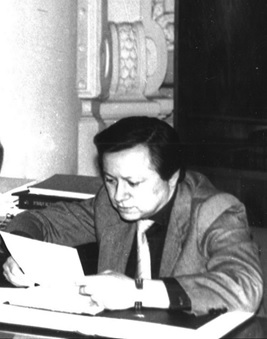
Mr V.Skudra
On 26 September 1990 the Supreme Council of the Republic of Latvia passed the Law “On Prosecutor’s supervision in the Republic of Latvia”. Thereby the Prosecution Office of the Republic of Latvia was established. 90% of employees acknowledged their readiness to work with the Prosecution Office of the Republic of Latvia. As Prosecutor General of the Republic of Latvia was appointed Mr Jānis Skrastiņš, as first Deputy of Prosecutor General – Mr Aļģis Raups, but as Deputy Prosecutor General – Mr Edvīns Ziediņš.
Initially the Prosecution Office of the Republic of Latvia had no own premises, due to that employees of both Prosecution Offices frequently were working in the same premises. In Rīga employees of the Prosecution Office were stationed also in the premises of the Council of Ministers, the Supreme Council, the Supreme Court and in the premises of other institutions.
Alongside with the Prosecution Office of the Republic of Latvia still was functioning also the Prosecution Office of the Latvian SSR subordinated to Moscow under leadership of Prosecutor of the Latvian SSR Mr Valentīns Daukšis. Such dual power lasted until August of 1991, when after attempted coup d’état of the supporters of the USSR the dissolution of the USSR triggered. On 21 August 1991 the Supreme Council of the Republic of Latvia passed the Law “On the Statehood of the Republic of Latvia”, thereby fully reinstating the independence of the State.
The Prosecution Office of the Republic of Latvia is a single centralised three-level system of institutions under leadership of Prosecutor General.
Since 1 July 1994 in the Republic of Latvia is effective the “Law on the Prosecution Office” passed by the Saeima on 19 May 1994. Since that time the Law is amended and supplemented, nevertheless it is still governing the functioning of the Prosecution Office.
Since 1990 the Prosecution Office is composed of the Prosecutor General’s Office, Prosecution Offices of regions, districts (cities) and the Regional Prosecution Offices. The system of the Prosecution Office institutions includes also specialized Prosecution Offices which are equal to districts (cities) Prosecution Offices.
According to the legislation Prosecutor General shall be appointed into the office and removed from it by the Saeima of the Republic of Latvia.
Prosecutors General of the Republic of Latvia:
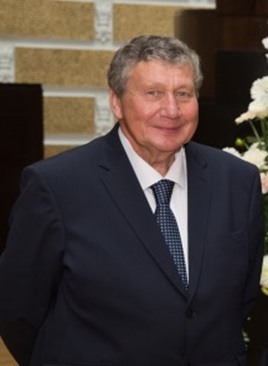
Mr Jānis Skrastiņš (Prosecutor General 1990-2000)
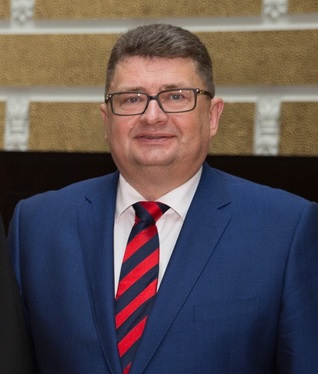
Mr Jānis Maizītis (Prosecutor General 2000-2010)
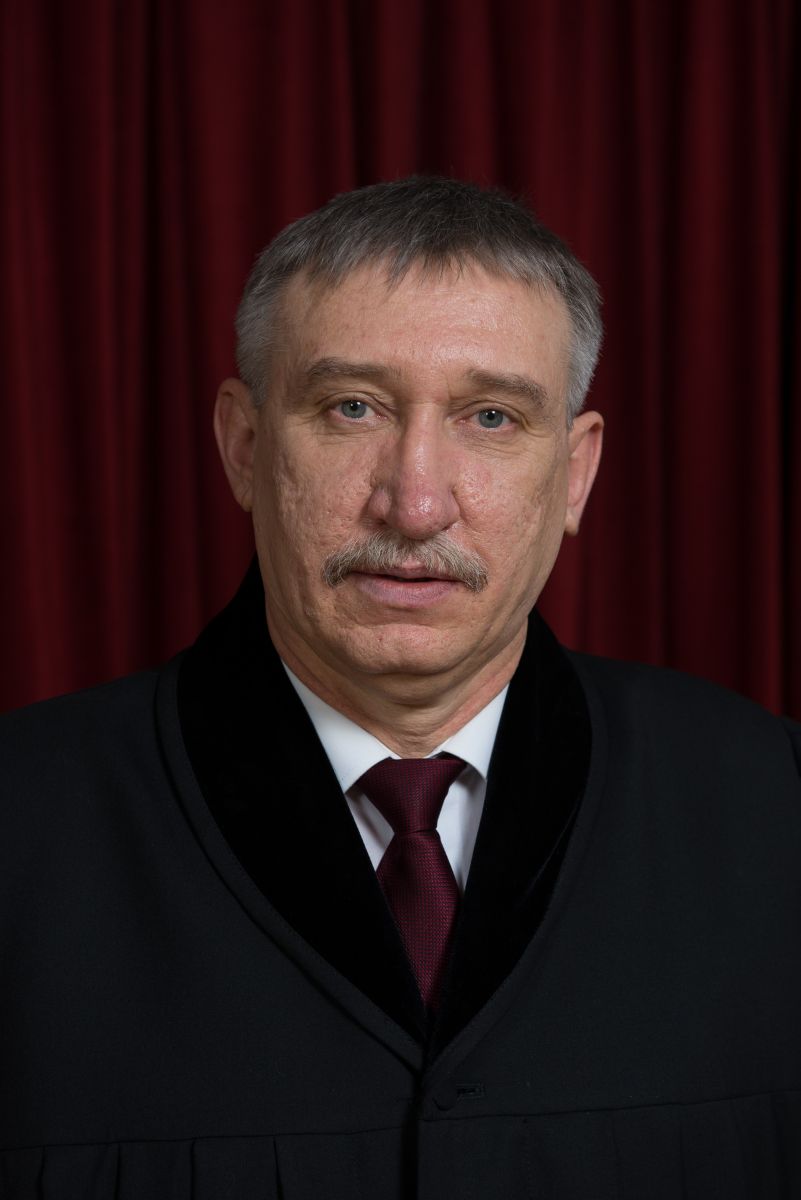
Mr Ēriks Kalnmeiers (Prosecutor General 2010-2020)
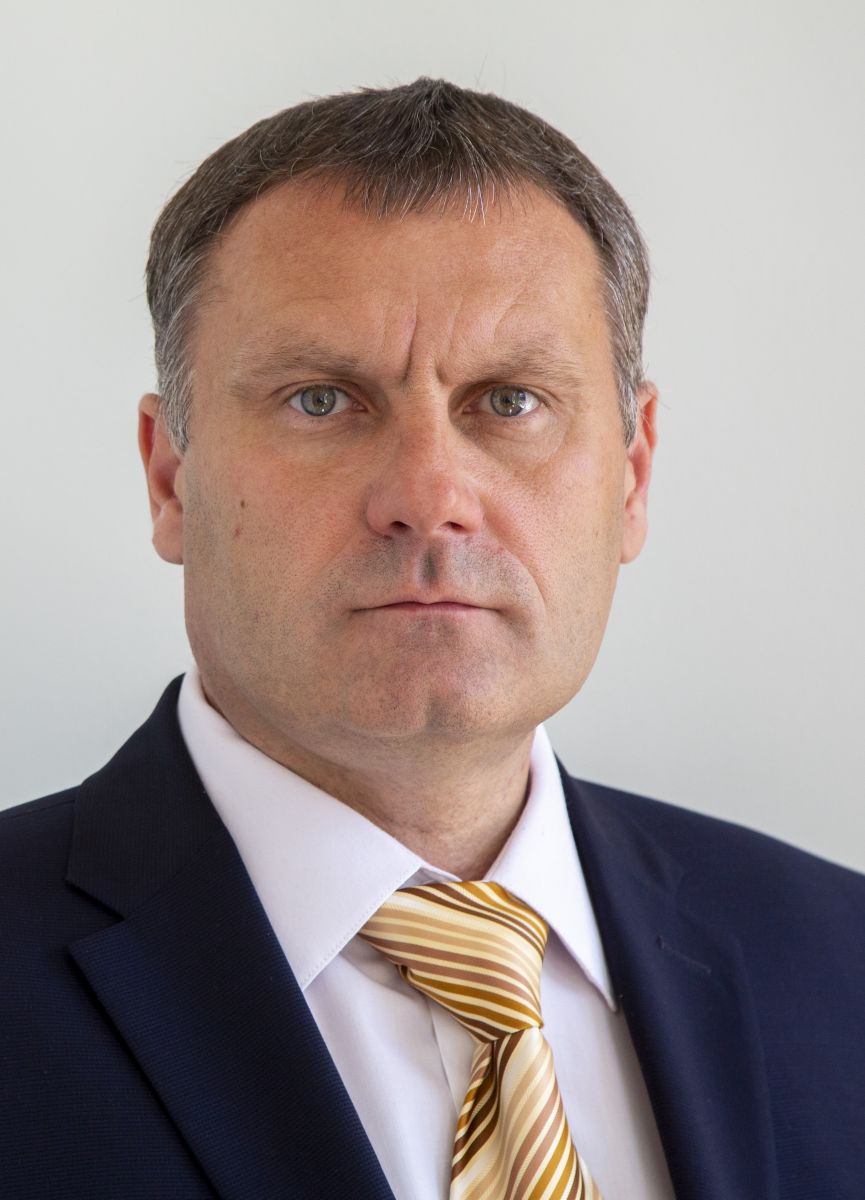
Mr Juris Stukāns (Prosecutor General 2020-present)
In nowadays the Prosecution Office of the Republic of Latvia is in constant development. It shall keep up-to-date both with the progress of the law system of the European Union and emerging technologies.
